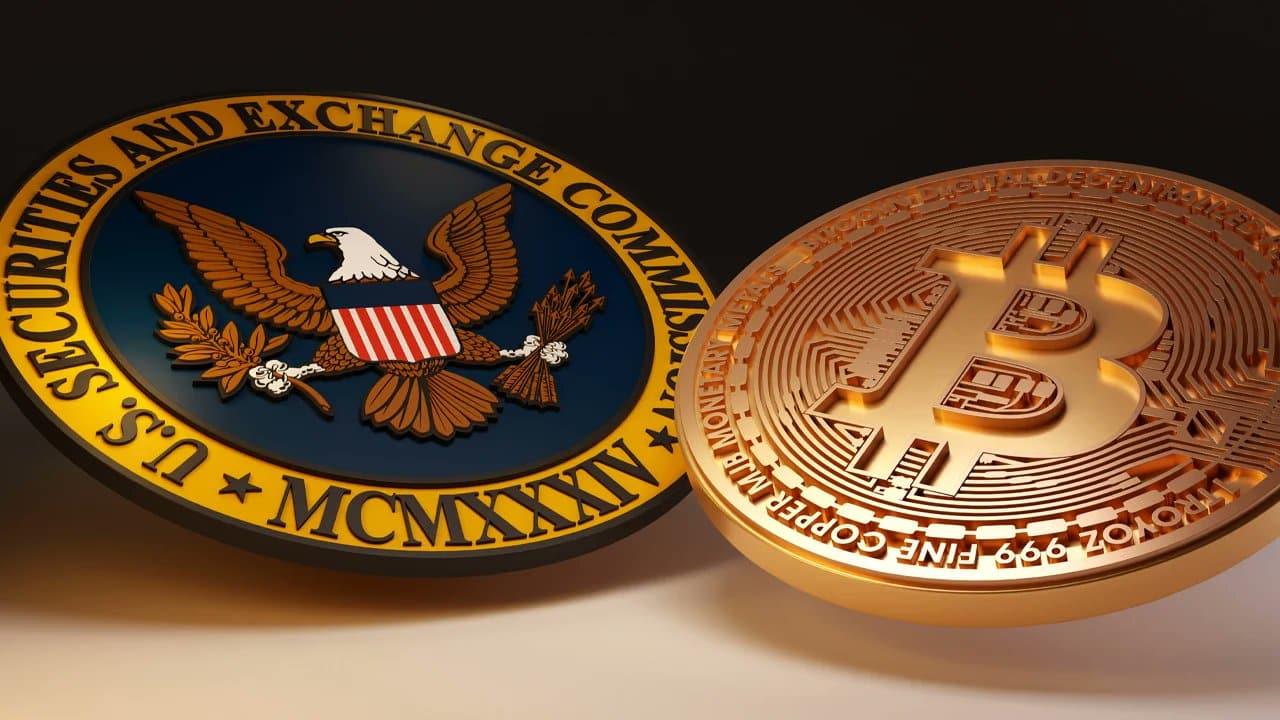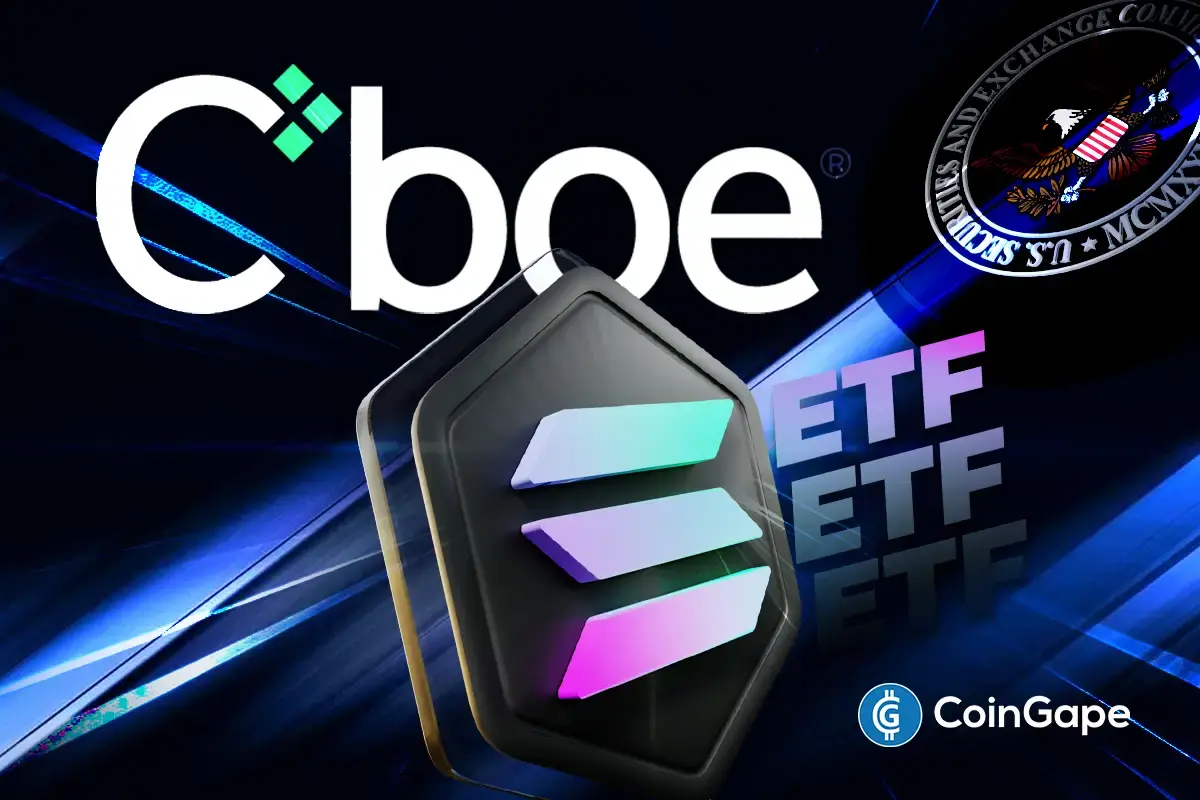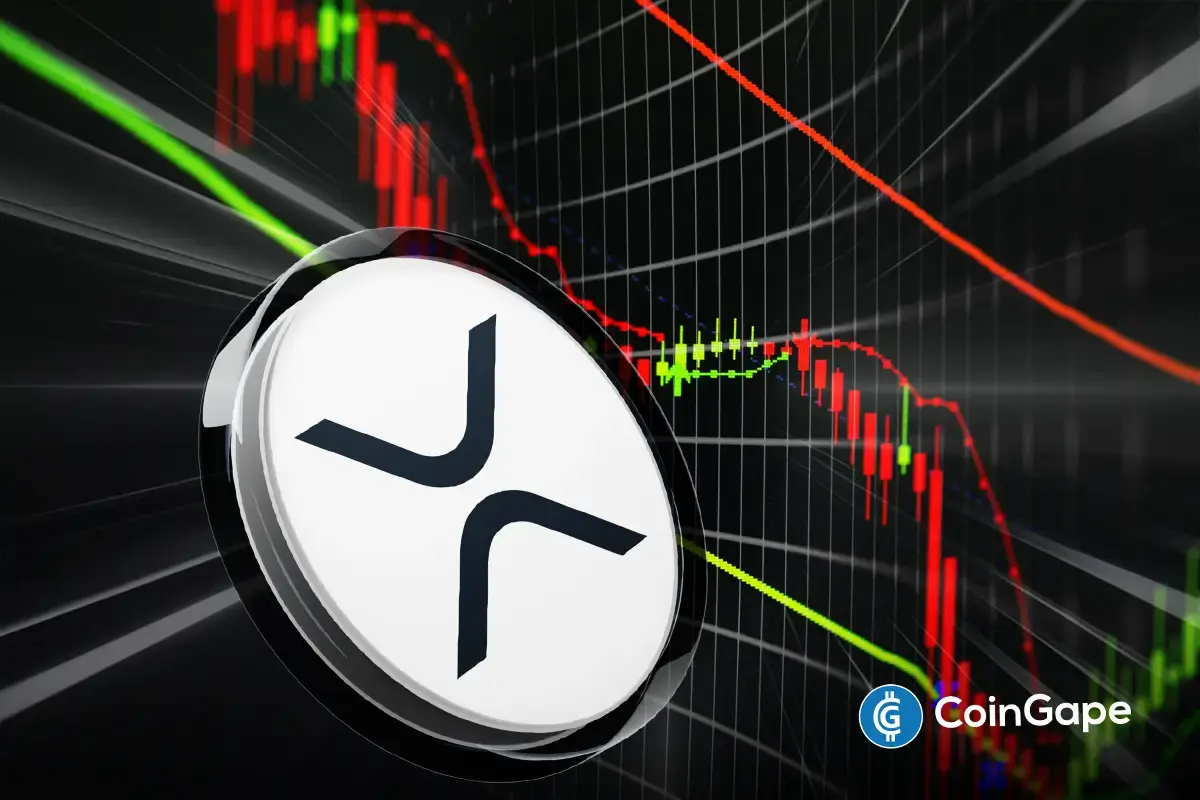Regulation
SEC Insider Reveals Reason Why Agency Eased SAB 121 For Select Entities

Recently, certain banks and broker-dealers received exceptions from the U.S. Securities and Exchange Commission (SEC) to custody crypto assets. This revelation comes despite the standing guidelines of Staff Accounting Bulletin (SAB) 121. Hence, netizens were questioning the actions of the agency and now there is an answer to this ‘bias.’
Why SEC Relaxed SAB 121 Rule For Banks & Brokerages?
The SAB 121 rules remain unchanged according to an SEC spokesperson. For context, SAB 121, issued by the SEC, outlines the accounting and disclosure obligations for companies holding crypto assets on behalf of customers. The guidance is primarily concerned with ensuring that customers’ crypto assets are protected and accounted for appropriately.
This comes handy particularly in scenarios of financial distress like bankruptcy or resolution. Meanwhile, FOX journalist Eleanor Terrett’s inquiry revealed that specific broker-dealers and custody banks have demonstrated to the SEC staff that their operational models differ significantly from those outlined in SAB 121.
According to the spokesperson quoted by Terrett:
“Certain broker dealers and custody banks have sufficiently demonstrated to SEC staff that their fact patterns are different from those described in SAB 121…such as ensuring that customers maintain ownership of their assets even in the case of a resolution or bankruptcy.”
These entities have managed to assure the SEC that they can maintain customer ownership of assets even under adverse conditions. Thus, they earned exceptions to the stringent requirements of SAB 121.
Furthermore, Terrett disclosed that the SEC’s accounting staff, who are responsible for SAB 121, have conducted private discussions with these financial institutions. These discussions, it appears, were not communicated to the SEC Commissioners. These Commissioners are now working to understand the substance of these conversations.
Also Read: GOP Whip Tom Emmer Accuses SEC Chair of Harassment
Industry Backlash On These Exceptions
While the U.S. House continued to hold President Joe Biden’s veto on the anti-SAB 121 bill, the SEC made the above-mentioned landmark decision. The U.S. regulator introduced a new method allowing banks and brokerages to exclude their customers’ crypto holdings from their balance sheets. Banks must, however, ensure that they manage all related risks effectively.
This decision was a positive development in response to the heated debate in Congress over the controversial crypto-accounting guidelines. According to a source at the SEC, the agency’s staff has begun providing guidance on specific arrangements that allow banks to avoid listing crypto holdings as liabilities on their balance sheets.
Popular banks have been in discussions with the SEC over the past year. Hence, they received approval to omit crypto assets from their balance sheets, provided they ensure customer asset protection in the event of bankruptcy. However, the SEC requires banks to implement additional safeguards and internal controls to protect these holdings.
This move ignited significant backlash from the crypto industry for the supposed “bias.” VanEck’s Head of Digital Assets Research, Matthew Sigel, lauded the latest move but also pointed out the flaws. In a post on X, he wrote, “Good news (albeit still a horrific process that now favors big guys vs. repealing SAB121 which would have set a level playing field).”
Furthermore, Custodia Bank CEO Caitlin Long, who has been expressing frustration toward discrimination in obtaining Fed masteraccounts, also chimed in. She wrote, “SEC leadership extracts revenge on the #crypto industry (one day after Ro Khanna’s White House session) by giving the big banks special ‘exceptions’ from #SAB121, while sidelining #crypto companies still subject to it. How are progressives OK with such corporate favoritism?”
Also Read: Stacks Price Soars 9% As SEC Ends Probe On Bitcoin Layer 2 Developer
The presented content may include the personal opinion of the author and is subject to market condition. Do your market research before investing in cryptocurrencies. The author or the publication does not hold any responsibility for your personal financial loss.
Regulation
US SEC Acknowledges Fidelity’s Filing for Solana ETF

The U.S. Securities and Exchange Commission (SEC) has formally acknowledged the filing for Fidelity’s spot Solana (SOL) Exchange-Traded Fund (ETF).
This marks a key development in the financial industry, as Fidelity seeks to list its Solana ETF on the Cboe BZX Exchange. The acknowledgment comes after Fidelity submitted a proposed rule change, paving the way for the potential approval of the product.
Fidelity’s Spot Solana ETF Proposal
The SEC’s acknowledgment follows Fidelity’s filing to list and trade shares of the Fidelity Solana Fund under the Cboe BZX Exchange. The proposed rule change, initially submitted on March 25, was later amended on April 1, 2025, to clarify certain points and add additional details.
The amended proposal aims to list the Solana ETF under BZX Rule, which pertains to commodity-based trust shares. According to the Cboe BZX Exchange, Fidelity plans to register the shares with the SEC through a registration statement on Form S-1.
Fidelity’s experience with crypto ETFs, having launched the Fidelity Wise Origin Bitcoin Fund (FBTC) and the Fidelity Ethereum Fund (FETH), has prepared it for this new initiative. FBTC has drawn substantial interest, accumulating nearly $17 billion in assets, while FETH currently manages around $975 million.
This Is A Developing News, Please Check Back For More
Disclaimer: The presented content may include the personal opinion of the author and is subject to market condition. Do your market research before investing in cryptocurrencies. The author or the publication does not hold any responsibility for your personal financial loss.
Regulation
US Senate Banking Committee Approves Paul Atkins Nomination For SEC Chair Role

The U.S. Senate Banking Committee has voted to approve Paul Atkins’ nomination for the role of Chair of the Securities and Exchange Commission (SEC). The vote, which took place on Thursday, passed with a narrow margin of 13-11, along party lines.
Paul Atkins, nominated by President Donald Trump, now moves one step closer to taking over the top regulatory position at the US SEC.
Senate Banking Committee Approves Paul Atkins Nomination
Paul Atkins’ nomination for SEC Chair has received approval despite sharp opposition from Democratic members of the Senate Banking Committee. The vote was entirely split, with Republicans supporting Atkins and all Democrats opposing the decision.
This partisan divide highlights the contentious nature of Atkins’ confirmation, which had been under scrutiny for several reasons.
The committee’s approval now clears the path for Atkins to proceed to the full Senate for a final confirmation vote. Given the Republican-controlled Senate, it is widely expected that Atkins will secure the necessary votes to take over the SEC leadership. With Republicans holding a 53-47 majority in the Senate, the confirmation process is anticipated to move forward swiftly.
This Is A Developing News, Please Check Back For More
Disclaimer: The presented content may include the personal opinion of the author and is subject to market condition. Do your market research before investing in cryptocurrencies. The author or the publication does not hold any responsibility for your personal financial loss.
Regulation
Kraken Obtains Restricted Dealer Registration in Canada

Cryptocurrency exchange Kraken has obtained a Restricted Dealer registration in Canada. The registration comes after completing a pre-registration undertaking (PRU) process with Canadian authorities.
The exchange has also announced the appointment of Cynthia Del Pozo as its new General Manager for North America. Del Pozo will oversee Kraken’s growth initiatives in Canada.
Kraken Completes PRU Process In Canada
Kraken’s Restricted Dealer registration marks the completion of a thorough pre-registration undertaking (PRU) process with Canadian regulators. The registration places Kraken under the supervision of the Ontario Securities Commission (OSC). This oversight ensures users have access to secure crypto products within a properly regulated local ecosystem.
According to the Canadian Securities Administrators (CSA), the Restricted Dealer registration is one of eight firm registration types in Canada. This particular classification is used for firms that “do not quite fit under any other category.” It also comes with specific requirements and conditions set by securities regulators.
Kraken’s regulatory achievement comes during a period of change in the Canadian crypto sector. Just months earlier, competitor Gemini exchange announced its departure from the Canadian exchange market by the end of 2024. This was a move that surprised many and raised questions about cryptocurrency regulation clarity in the country.
Kraken Introduces New Canadian GM
Del Pozo has joined Kraken to lead its Canadian operations as the new General Manager for North America. She has nearly 15 years of experience in corporate development, operations, and fintech consulting. Del Pozo will help to guide Kraken’s expansion across Canada during this important phase of crypto’s development in the region.
“Canada is at a turning point for crypto adoption, with a growing number of investors and institutions recognizing digital assets as a vital part of the financial future. I’m thrilled to join Kraken’s mission at this critical moment, and to lead our expansion efforts, ensuring we continue to serve our clients long-term with innovative and compliant products,” said Del Pozo.
In her role, Del Pozo will focus on strengthening Kraken’s regulatory relationships and also scaling the company’s presence throughout North America.
Del Pozo also commented on the registration achievement: “This Restricted Dealer registration is testament to the high bar Kraken has always set for consumer protection, client service, and robust security. We’re excited to continue expanding our world-class investment platform and to deliver innovative products that provide real-world utility to Canadians.”
The Exchange’s Continued Growth In Canada
Over the past two years, the cryptocurrency exchange has shown steady expansion in Canada while working through the PRU process with regulators. During this period, the exchange has doubled its team size and monthly active users.
According to the official blog post figures, the firm now has more than $2 billion CAD in total client assets under custody. Kraken has also increased support for some of the most popular cryptocurrencies. It provides several CAD spot trading pairs that enable Canadians to trade crypto without paying expensive foreign exchange fees.
According to Innovative Research Group’s 2024 Investor Survey, 30% of Canadian investors currently own or have owned cryptocurrencies. Likewise, a KPMG Canada survey discovered that 30% of Canadian institutional investors now have exposure to cryptocurrencies, which means widespread adoption across investor types.
Disclaimer: The presented content may include the personal opinion of the author and is subject to market condition. Do your market research before investing in cryptocurrencies. The author or the publication does not hold any responsibility for your personal financial loss.
-

 Market24 hours ago
Market24 hours agoIP Token Price Surges, but Weak Demand Hints at Reversal
-

 Ethereum23 hours ago
Ethereum23 hours agoEthereum Trading In ‘No Man’s Land’, Breakout A ‘Matter Of Time’?
-

 Market20 hours ago
Market20 hours agoBitcoin’s Future After Trump Tariffs
-

 Regulation19 hours ago
Regulation19 hours agoUS Senate Banking Committee Approves Paul Atkins Nomination For SEC Chair Role
-

 Altcoin24 hours ago
Altcoin24 hours agoMovimiento millonario de Solana, SOLX es la mejor opción
-

 Bitcoin23 hours ago
Bitcoin23 hours agoBlackRock Approved by FCA to Operate as UK Crypto Asset Firm
-

 Market23 hours ago
Market23 hours agoHBAR Foundation Eyes TikTok, Price Rally To $0.20 Possible
-

 Altcoin23 hours ago
Altcoin23 hours agoJohn Squire Says XRP Could Spark A Wave of Early Retirements




















✓ Share: